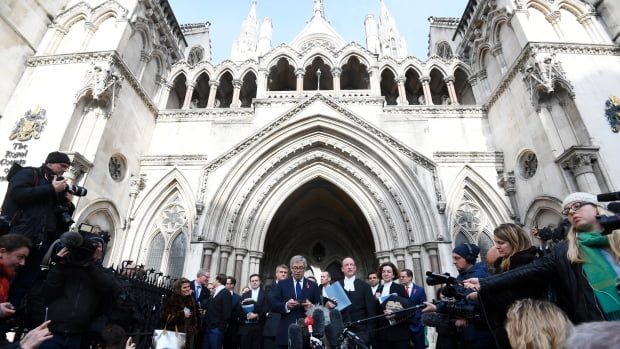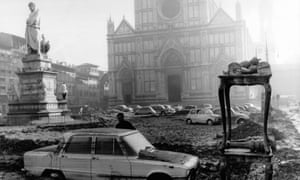
The small attic apartment that Swietlan Kraczyna shared with his wife and baby daughter in Florence did not have heating, but it had a great view of the Arno river. It was nearly dawn 50 years ago on Friday, when the immense sound of water rushing through the three arches of the Ponte Santa Trinita made the artist, who usually worked at night, look out the window.
What followed – the great flood of Florence – would be remembered for decades as the worst natural disaster to lay siege to the city at the heart of the Renaissance. Dozens of lives were lost, great works of art destroyed or nearly destroyed, and a million books in the city’s low-lying Biblioteca Nazionale were submerged.
Kraczyna, who was living on a shoestring at the time and worried about having enough food for his family, grabbed his camera and headed for the streets with just 16 shots left in his roll of film.
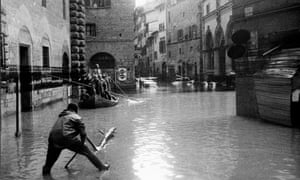
He found shopkeepers trying to salvage what they could and recalls holding on to buildings as he made his way back home, trudging along against the current.
“Once I was home, we sat and just watched. There were various antique shops close to the Ponte Vecchio and we saw all this beautiful furniture just flowing down the river. So we knew great damage was being done, but we had no idea how terrible it was in Santa Croce, where the greatest loss took place,” Kraczyna said.
The famous Franciscan basilica, constructed in 1296, was steeped in nearly three metres of water after the Arno busted through the riverbank.
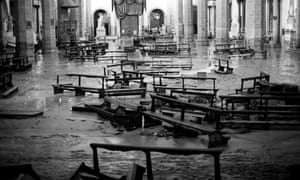
Miles away, in Pisa, Kirsten Aschengreen Piacenti, an art historian, felt honour-bound to get on a bus and head to Florence. She joined the ranks of the angeli del fango, or mud angels, who went about saving some of the world’s most treasured works, which were not only wet and muddy but in some cases – such as the marble statues in the Bargello museum – covered in slick oil that was proving difficult to remove.
As the effort to save works speeded up in the following weeks, Piacenti bumped into an old friend, a professor from the University of London who was working in the Uffizi, and described the dilemma. The meeting set off a chain of events that led to the creation of new laboratories in which chemicals would be used to treat the marble for the first time.
Help poured into the city, in the form of experts and funds. The efforts of the mud angels – Piacenti worked on the cleanup for a year and a half – were characterised by “the feeling around the world that Florence must be saved”, Piacenti said.

“It was the feeling that the Renaissance started in Florence, you know, and so it concerned all of us. Michelangelo, Brunelleschi, these were people who appealed to everyone in the art world,” she said.
On Friday, when Florence commemorates the 50th anniversary of the flood, it will also finally unveil the reinstallation of possibly the most famous work to have been severely damaged and saved, Vasari’s Last Supper. The five-panel painting had been immersed in water for 12 hours, and its restoration was only completed in late 2013. Other masterpieces that were damaged included Cimabue’s great Crucifix from Santa Croce, and Donatello’s Penitent Magdalene.
The story behind the effort to save Florence has been captured in a new documentary directed by Enrico Pacciani – Firenze 66 Dopo l’alluvione – which will air in Italy on 5 November on Sky Arte.
For all the devastation wreaked on Florence, said Donal Cooper, a university lecturer in Italian Renaissance art at Cambridge, the 1966 flood also drove profound change and innovation in conservation practice, pointing to the post-flood establishment of the Opificio delle Pietre Dure.
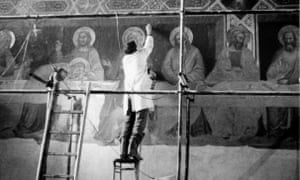
“In the wake of 1966, restorers learned how to save frescoes without detaching them from walls and how to preserve manuscripts using historic materials and techniques,” Cooper said. “The post-flood response stands as a great achievement of international collaboration and laid the foundations for Italian excellence in art conservation.”
Eyewitnesses including Kraczyna – whose prints would later hang in the Uffizi Gallery – remember how quickly the water receded, just a day after it spread its devastation. When it was all done, Florentines began heading to the Ponte Vecchio.
“During the second world war it was the only bridge that was not blown up by the Germans. The Ponte Vecchio had survived the war and people came to see whether it had survived the flood or not. If the bridge survived, Florence would survive,” Kraczyna said.
[Source:-The Guardian]
